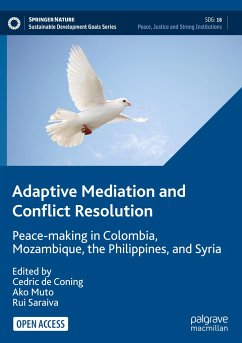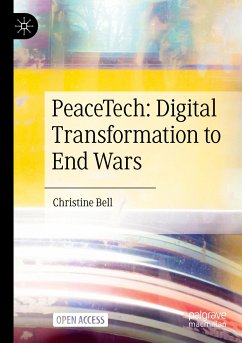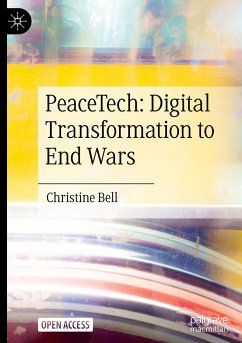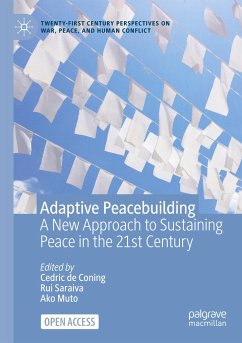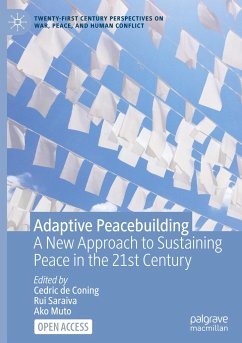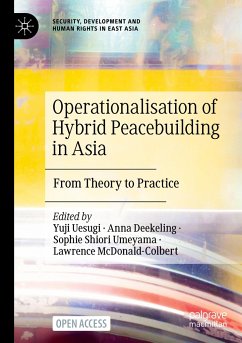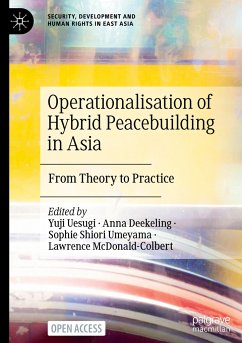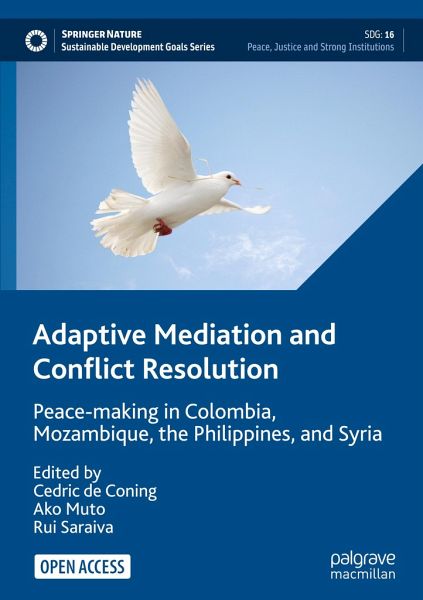
Adaptive Mediation and Conflict Resolution
Peace-making in Colombia, Mozambique, the Philippines, and Syria
Herausgegeben: de Coning, Cedric; Muto, Ako; Saraiva, Rui
Versandkostenfrei!
Versandfertig in 1-2 Wochen
32,99 €
inkl. MwSt.

PAYBACK Punkte
16 °P sammeln!
This open access book introduces adaptive mediation as an alternative approach that enables mediators to go beyond liberal peace mediation, or other determined-design models of mediation, in the context of contemporary conflict resolution and peace-making initiatives. Adaptive mediation is grounded in complexity theory, and is specifically designed to cope with highly dynamic conflict situations characterized by uncertainty and a lack of predictability. It is also a facilitated mediation process whereby the content of agreements emerges from the parties to the conflict themselves, informed by ...
This open access book introduces adaptive mediation as an alternative approach that enables mediators to go beyond liberal peace mediation, or other determined-design models of mediation, in the context of contemporary conflict resolution and peace-making initiatives. Adaptive mediation is grounded in complexity theory, and is specifically designed to cope with highly dynamic conflict situations characterized by uncertainty and a lack of predictability. It is also a facilitated mediation process whereby the content of agreements emerges from the parties to the conflict themselves, informed by the context within which the conflict is situated. This book presents the core principles and practices of adaptive mediation in conjunction with empirical evidence from four diverse case studies - Colombia, Mozambique, The Philippines, and Syria - with a view to generate recommendations for how mediators can apply adaptive mediation approaches to resolve and transform contemporary and future armed conflicts.





